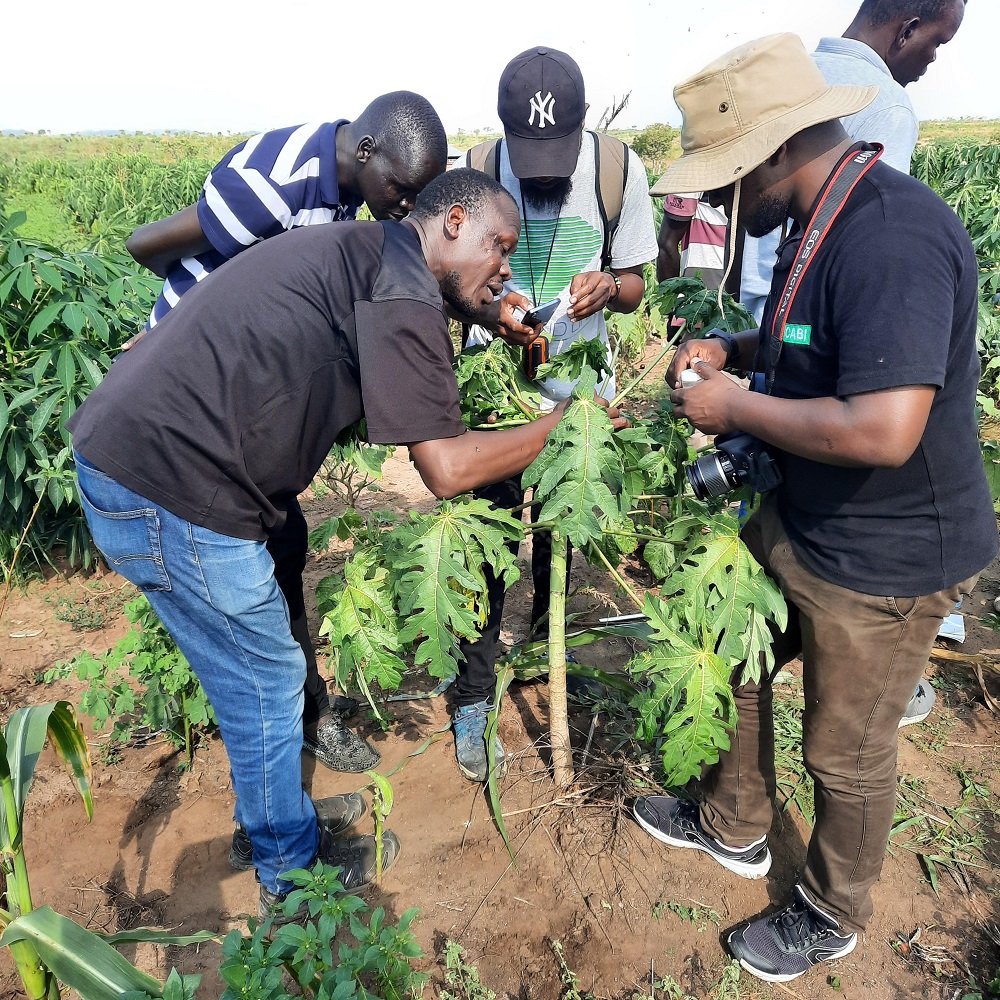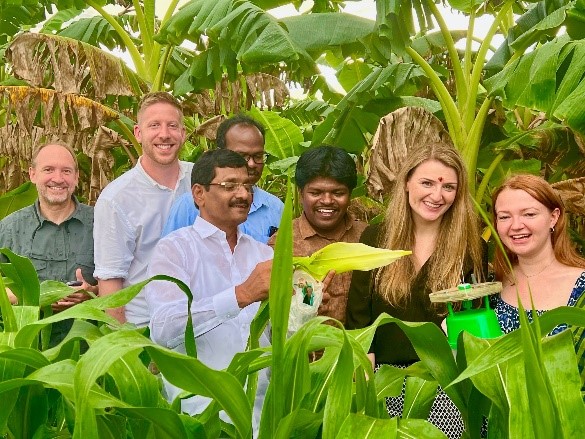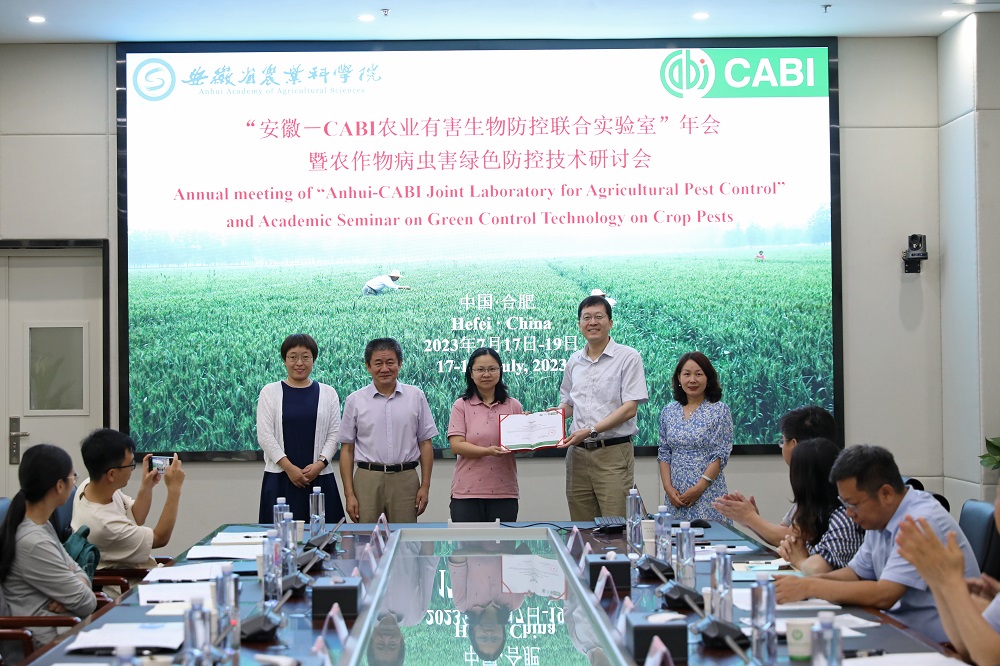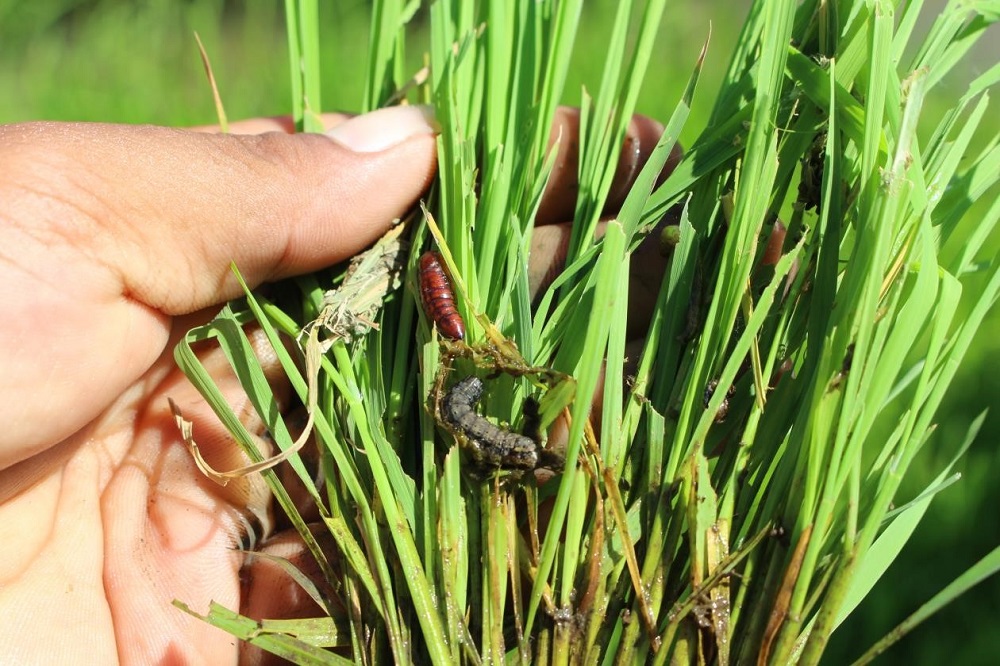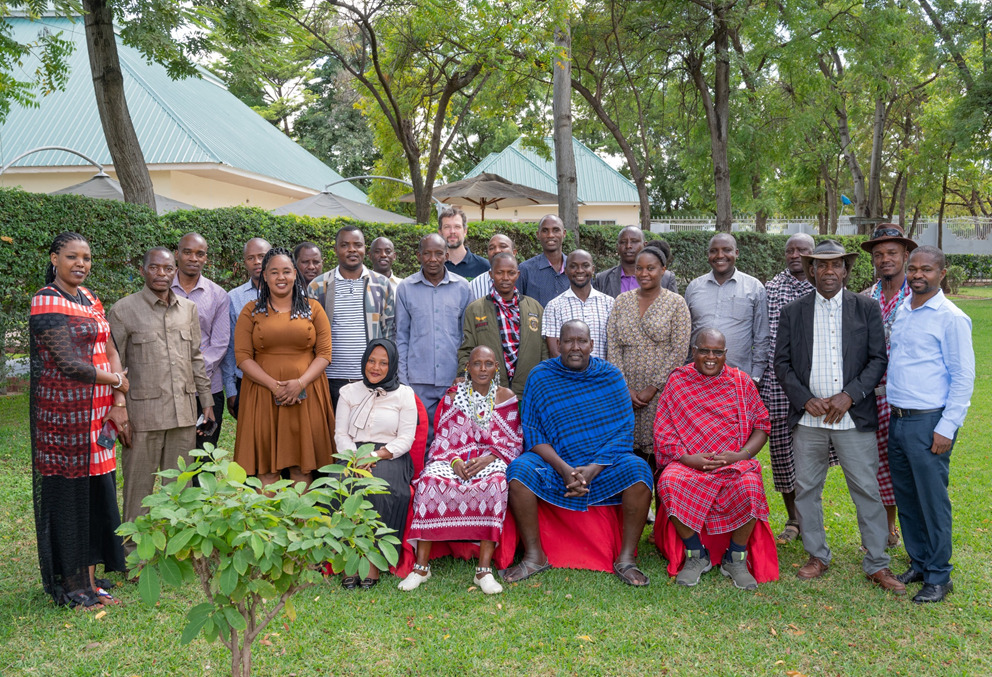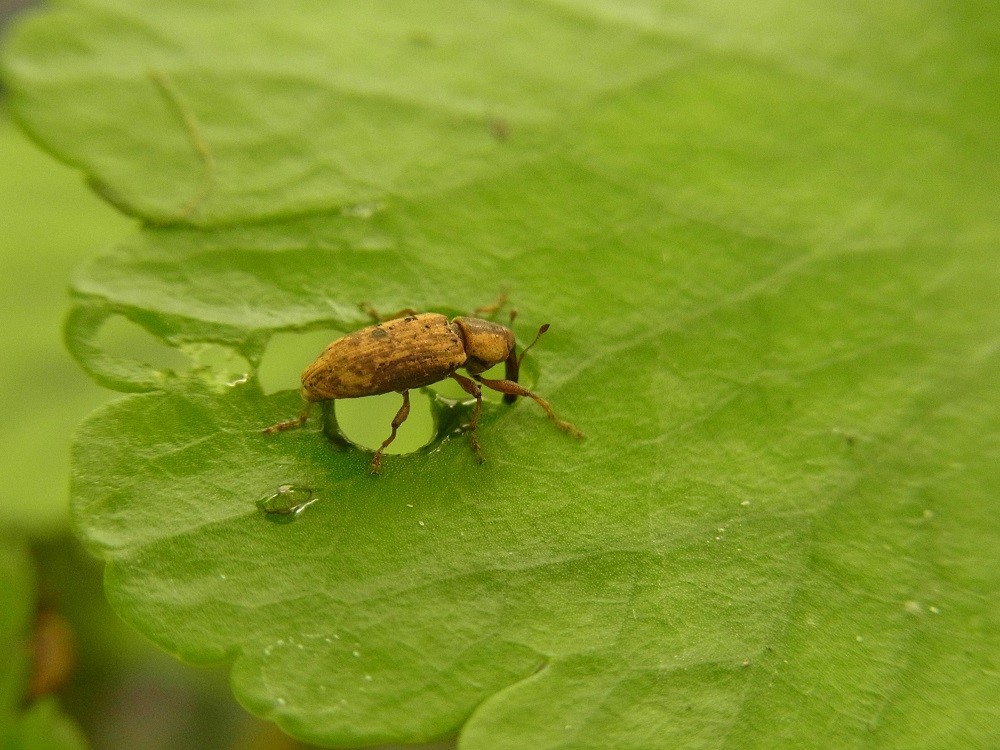Invasives Blog
You are here: Invasives Blog
CABI contributes to study which reveals yellow-spined bamboo locust prefers wheat and rice to maize
December 13, 2023
Wayne Coles
No Comments
Scaling up the fight against papaya mealybug pest in South Sudan
December 1, 2023
Wayne Coles
No Comments
Review article traces the origins and tracks movement of invasive rubber vines in over 80 countries and territories
November 22, 2023
Wayne Coles
No Comments
CABI shares expertise in drone management of insect pests at Entomology 2023
November 8, 2023
Wayne Coles
No Comments
Revolutionizing crop protection: Success of a novel approach to combatting fall armyworm in India
August 18, 2023
Wayne Coles
No Comments
Annual meeting of Anhui-CABI Joint Lab in China highlights scientific progress in crop pest control
August 2, 2023
Wayne Coles
No Comments
Pest Alert issued for fall armyworm pest infesting rice crop in the Philippines
July 26, 2023
Wayne Coles
1 comment
Workshop explores strategy to tackle woody weed threat to biodiversity and livelihoods in Tanzania
June 8, 2023
Wayne Coles
No Comments
Study examines potential for collective action to fight fall armyworm with biological controls in rural Zambia
May 30, 2023
Wayne Coles
No Comments
CABI’s expertise shared at XVI International Symposium on Biological Control of Weeds 2023
May 25, 2023
Wayne Coles
1 comment
Subscribe
Find out more
For more information about CABI's work on invasive species, please visit www.invasive-species.org
Contribute
If you are active in the field of invasive species or development and would like to contribute to the Invasives Blog, please contact Donna Hutchinson. We are happy to post credible articles that we think would be of interest to our readership.
Views expressed in contributions do not necessarily reflect official CABI positions.
Archives
Categories
- Agriculture and International Development
- Veterinary and Animal Sciences
- Climate change and biodiversity
- Environmental Sciences
- Invasive species
- Plant Sciences
- Crop health
- Development communication and extension
- Digital development
- Economic development
- Food and nutrition security
- Gender and youth
- Publishing
- Value chains and trade


